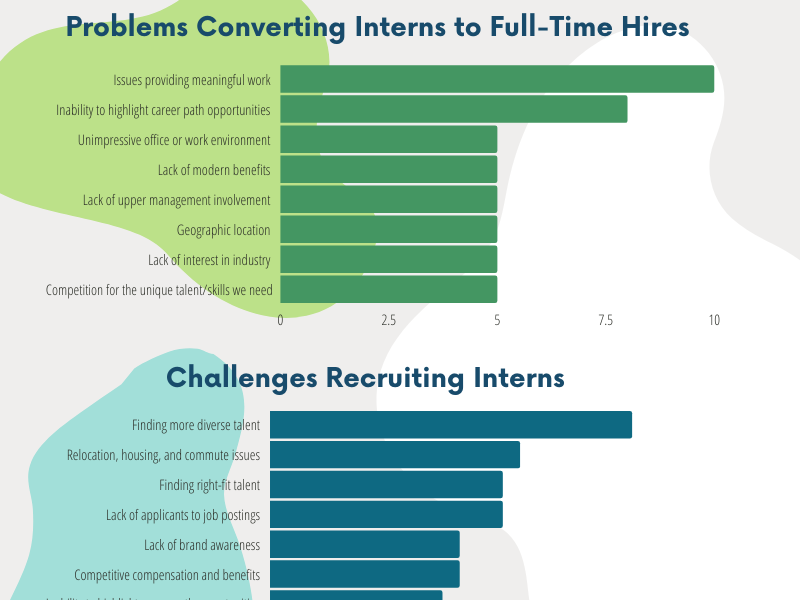In today’s dynamic job market, internships have become a crucial stepping stone for students and young professionals. These programs offer invaluable hands-on experience and a glimpse into real-world professional environments. However, modern internship programs also come with their unique set of challenges and hurdles. This article delves into the various opportunities and challenges present in today’s internship programs, providing a comprehensive overview for both aspiring interns and organizations offering these programs.
Opportunities in Modern Internship Programs
- Practical Experience: Internships provide a platform for individuals to apply their academic knowledge in practical settings, bridging the gap between theory and practice.
- Networking: Internships offer opportunities to build professional networks that can be crucial for future job prospects.
- Skill Development: Interns can acquire new skills and refine existing ones, which are essential in the current job market.
- Career Exploration: Internships allow individuals to explore various career paths and find their true calling.
- Transition to Full-time Employment: Many organizations use internships as a pipeline for recruiting full-time employees.
- Mentorship: Interns often receive mentorship from experienced professionals, providing guidance and enhancing their learning experience.
Challenges in Modern Internship Programs
While there are numerous benefits, interns and organizations also face several challenges:
- Unpaid Internships: The prevalence of unpaid internships can limit opportunities for those who cannot afford to work without compensation.
- Work Quality: Some internships may not provide meaningful work, reducing the learning value of the program.
- Lack of Proper Management: Inadequate supervision or poorly structured programs can lead to a suboptimal experience for interns.
- High Competition: The demand for prestigious internships often outstrips supply, making them highly competitive.
- Work-Life Balance: Balancing internship commitments with academic responsibilities can be challenging for students.
- Legal and Ethical Considerations: Ensuring compliance with labor laws and ethical standards, especially in unpaid internships, is crucial for organizations.
Navigating the Internship Process: For Interns
For aspiring interns, effectively navigating the internship process is key:
- Research: Thoroughly research potential internships to find programs that align with your career goals.
- Application Process: Tailor your resume and cover letter to each application, and prepare diligently for interviews.
- Setting Goals: Define what you want to achieve from the internship to stay focused and motivated.
- Networking: Utilize the internship to expand your professional network, attending events and meetings.
- Seek Feedback: Regularly seek feedback on your performance and work on areas of improvement.
Best Practices for Organizations
For organizations, offering a valuable internship experience is essential:
- Structured Programs: Develop structured programs with clear objectives, tasks, and timelines.
- Meaningful Work: Assign interns meaningful work that contributes to their learning and your organization’s goals.
- Mentorship and Supervision: Provide interns with mentors or supervisors to guide their professional development.
- Compensation and Benefits: Offer fair compensation, or if unpaid, ensure the internship provides substantial educational value.
- Legal Compliance: Ensure the internship program complies with labor laws and ethical standards.
- Feedback and Evaluation: Provide regular feedback to interns and evaluate the success of the program.
The Impact of Technology and Remote Internships
The rise of technology has introduced new dimensions to internship programs:
- Remote Internships: The increase in remote internships, accelerated by the COVID-19 pandemic, has made internships more accessible but also presents challenges in engagement and supervision.
- Digital Skills: Interns now have the opportunity to develop digital skills that are crucial in the modern workplace.
The Role of Educational Institutions
Educational institutions play a vital role in facilitating internship programs:
- Partnerships with Industry: Universities and colleges can form partnerships with industries to provide students with internship opportunities.
- Internship Credits: Some institutions offer academic credit for internships, integrating them into the curriculum.
- Career Services: Offering guidance and resources through career services can help students secure and succeed in internships.
Conclusion
Modern internship programs offer a wealth of opportunities for personal and professional growth but also come with challenges that need careful navigation. For interns, it’s about finding the right opportunities, making the most out of them, and overcoming hurdles. For organizations, the focus should be on creating meaningful, well-structured programs that adhere to legal and ethical standards. As the professional world continues to evolve, so will the nature of internships, requiring both interns and organizations to adapt and innovate continually.


















